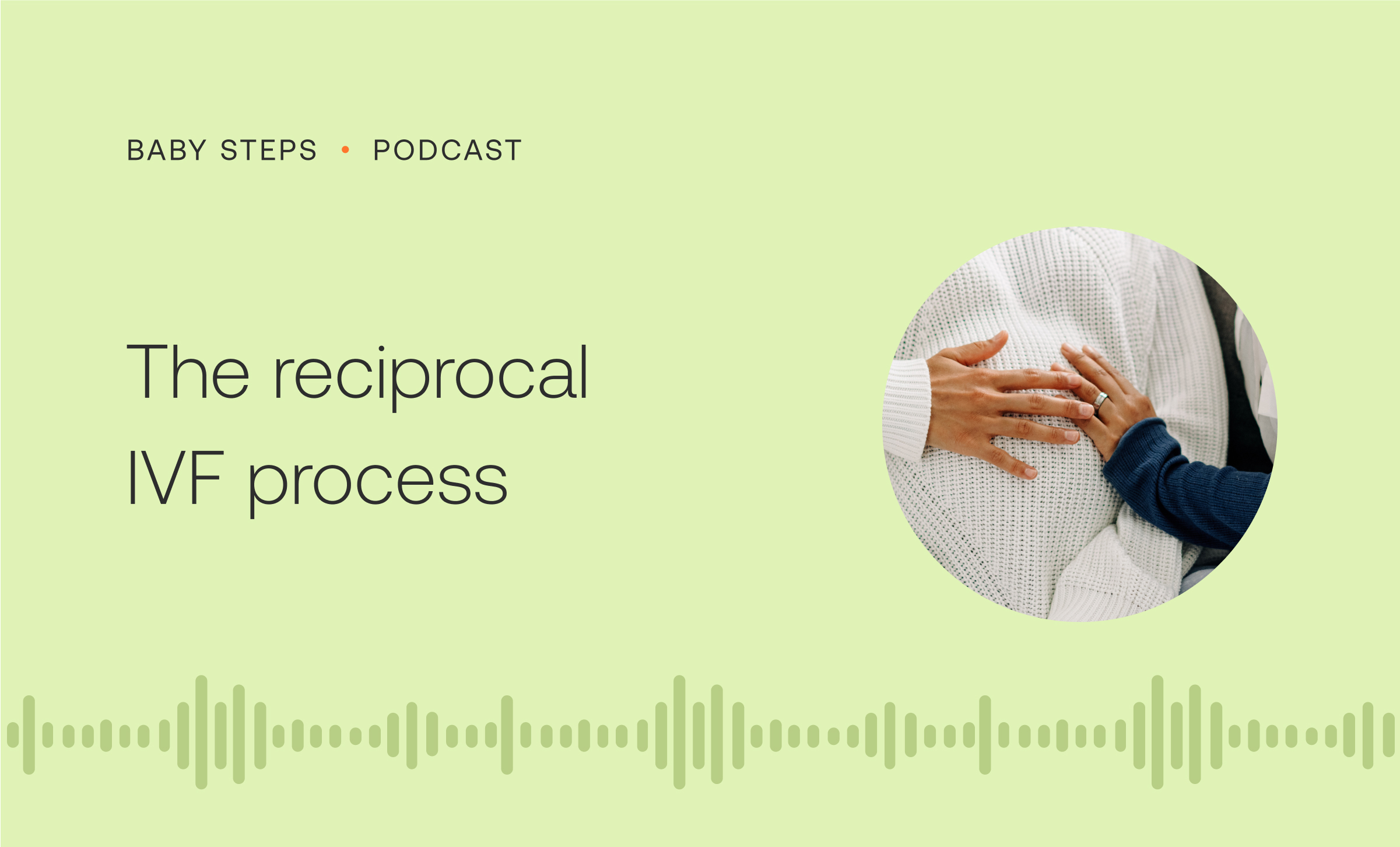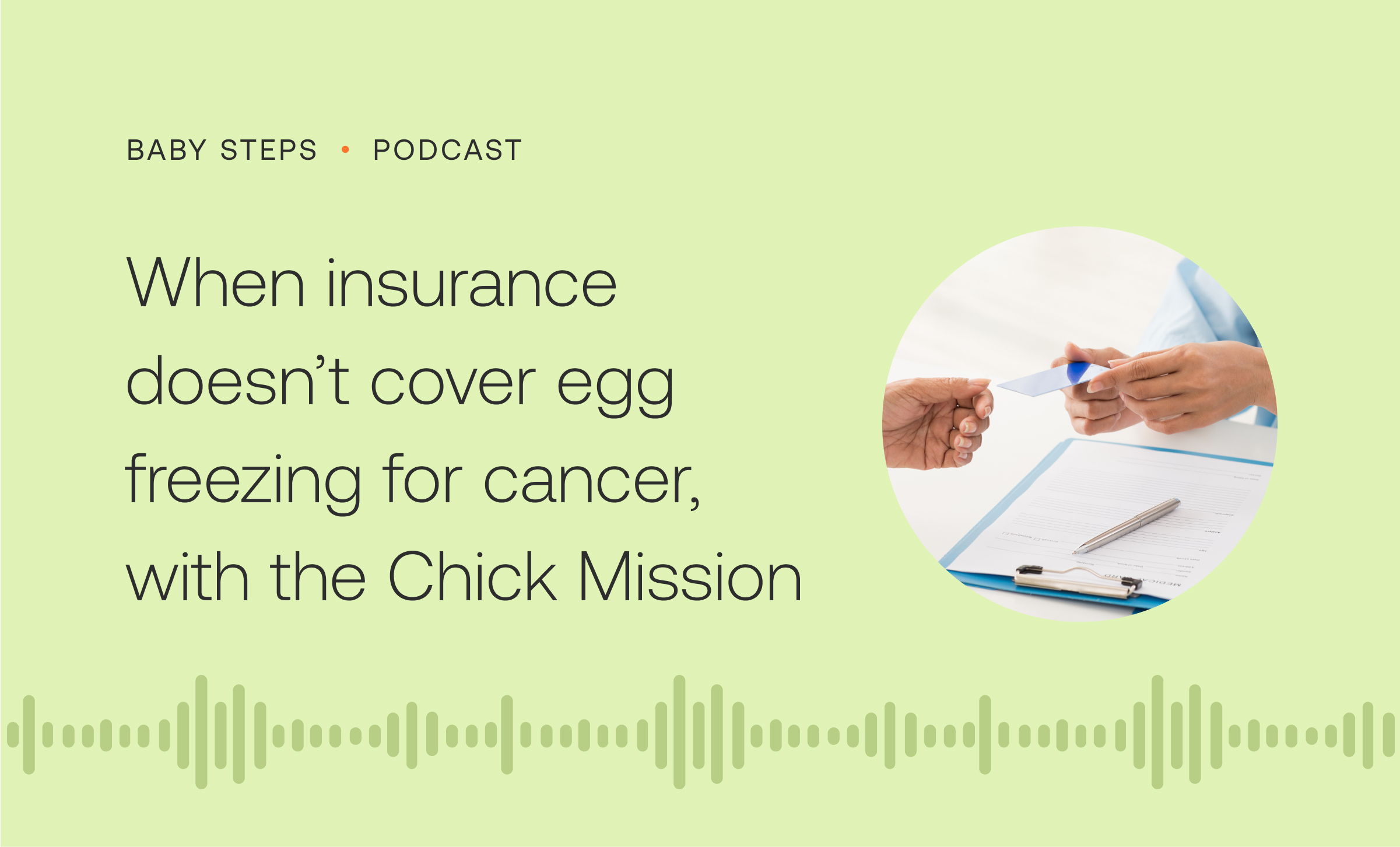Choosing a fertility clinic is one of the most important steps in many family-forming journeys. When making your choice, you might look for clinics close to where you live that have good reviews and accept your payment method. But it’s also important to figure out less tangible details like whether you have a rapport with the doctor and staff. At Carrot, we simplify the process by vetting all of the clinics and agencies in our network — but it’s also important to find a clinic that you personally connect with.
We chatted with Mark Trolice, MD, Founder and Medical Director at Carrot partner The IVF Center, about his advice on finding a fertility clinic that best meets your emotional, financial, and logistical needs. We also covered health and lifestyle tips for fertility, coping with the emotional side of a fertility journey, and how his clinic advocates for better fertility coverage for everyone.
Carrot partner name: The IVF Center
Location: Winter Park, FL
Interview with: Mark Trolice, MD, Founder & Medical Director
Tell me a bit about the IVF Center and how you work with Carrot.
The IVF Center was founded in 2003. Since the beginning, we have focused on one goal: a patient-centered practice with excellent customer service. We remind ourselves daily, “People don't care how much you know until they know how much you care.” While we cannot guarantee a pregnancy for every patient, we extend ourselves to the fullest to provide individualized personal care combined with the most advanced assisted reproductive technology (ART).
Carrot members receive a 10% discount on testing and treatment when using their Carrot Fertility benefit dollars at The IVF Center. Carrot members can use their financial benefits for any fertility services provided by The IVF Center, and medications are covered through Carrot Rx.
What should people look for in a fertility clinic?
Often, you will receive a recommendation from your referring physician, a trusted family member or friend, or through online reviews. The next step is to review information on the clinic’s website and ensure the physicians are board-certified in reproductive endocrinology and infertility as well as members in good standing with the Society for Assisted Reproductive Technology (SART). At your first visit, you want to be assured that you’ll receive evidence-based, compassionate care that’s personalized, not “cookie-cutter.” This means you should have contact with the doctor and staff to develop a partnership. Ultimately, the clinic should accommodate your schedule, partner with you for your care, and include you in any decision making. The fertility clinic’s responsibility is to comfort and support, dispel myths, and provide evidence-based testing and treatment options.
What should people know before starting their fertility journey?
One first step to consider is having a fertility check-up. This will allow your doctor to determine whether there are issues that could negatively impact your and your baby’s health and correct these matters to optimize the outcome. Your doctor will consider your diet and lifestyle, medical and family history, current medications, and review whether you’re up to date on vaccinations.
As for nutrition and lifestyle considerations, a daily prenatal vitamin and a well-rounded diet provide all the vitamins and minerals needed during pregnancy. Folic acid is a B vitamin that is vitally necessary for pregnant people. Before and during pregnancy, you need a minimum of 400 micrograms of folic acid daily to help prevent major birth defects of the fetal brain and spine called neural tube defects. Folic acid should be started several months prior to attempts at getting pregnant.
In addition to folic acid, pregnant people need more iron than non-pregnant people — about double, in fact. This helps the body make more blood to carry oxygen to the baby. The daily amount needed (27 mg) is provided in most prenatal vitamins. You can also eat more iron-rich foods, including lean red meat, poultry, fish, dried beans and peas, iron-fortified cereals, and prune juice. Calcium is also needed during pregnancy to build the baby’s bones and teeth. Food sources include milk and other dairy products, such as cheese and yogurt. For people who cannot tolerate milk, other sources are broccoli; dark, leafy greens; sardines; or a calcium supplement.
What advice do you have for managing stress during the fertility treatment process?
For generations, we’ve assumed that stress and fertility are associated. However, there is no definitive evidence that stress causes infertility while the opposite is most certainly true: infertility causes stress. Stress often results from trying to control something you can’t. Exercise and relaxation techniques, including meditation and mindfulness, can be very helpful to psychological challenges along the journey. Finding a support group can help, as well.
From your perspective, how have fertility benefits and the family-forming space changed over the years?
Fortunately, fertility benefits are creatively evolving through partnerships that improve patient access to ART. Thanks in part to media coverage, conversations regarding infertility have become less stigmatized, and infertility treatment is becoming more mainstream. Across the country, there is a slow but steady movement toward mandating infertility insurance coverage to hopefully include fertility preservation for cancer patients, active military, veterans, and the LGBTQ+ community. For our part, The IVF Center prioritizes affordable care for patients through options including our unique in-house financing. Part of our mission is to be an advocate for our patients, which is demonstrated by our doctors participating in RESOLVE/ASRM Advocacy Day to increase awareness of infertility among our legislatures in hopes of improving insurance coverage requirements.
Is there anything else you would like to add?
We’re privileged to be involved in this special part of a person’s life, and it is our honor to have their confidence in our care.
If you’re a fertility care or family-forming service provider interested in supporting Carrot members, or you would like to learn more about working with Carrot, please contact us at providers@get-carrot.com.













